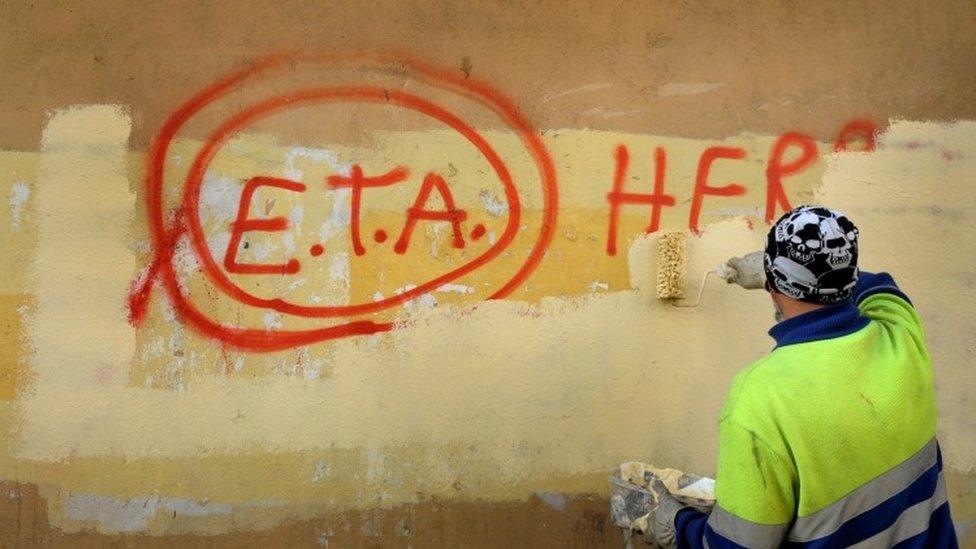Basque Eta ex-inmates recognise 'damage' from violence
- Published
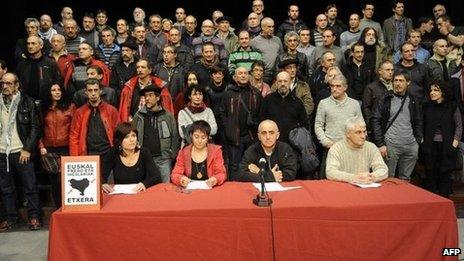
The meeting of former Eta prisoners has been condemned by the government
Former militants from the Basque separatist group Eta have expressed regret for carrying out acts of violence in the past.
The group of about 70 recently released prisoners said they were aware of the suffering and "damage" they had caused.
The statement was read out at a meeting in the Basque Spanish town of Durango. It was the first time the ex-prisoners had appeared in public together.
The government has condemned the event, describing it as a "witches' sabbath".
The statement issued by the former prisoners on Saturday said they "accepted full responsibility for the consequences of the conflict".
They said they recognised the "multilateral damage" from their past actions, as well as the "mixed feeling" caused by their words.
"That is why we will act responsibly with positive and constructive will and vision," the statement said.
'Guarded apology'
The statement also demanded an amnesty for remaining Eta detainees.
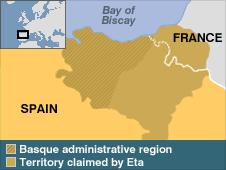
The BBC's Tom Burridge in Madrid said it will be interpreted by some as a guarded apology.
The militants were convicted for shootings and bombings from the 1970s to the 1990s.
Last year, the European Court of Human Rights ruled that they should be freed. The government, while condemning the ruling, began releasing the prisoners in October.
The government opposes negotiations with Eta, which in 2011 declared an end to its armed campaign to create a Basque state in northern Spain and south-western France.
On Friday the Spanish interior minister said he was only interested in the "unconditional dissolution" of Eta.
More than 800 people have been killed by Eta in its four-decade campaign.
- Published26 December 2013
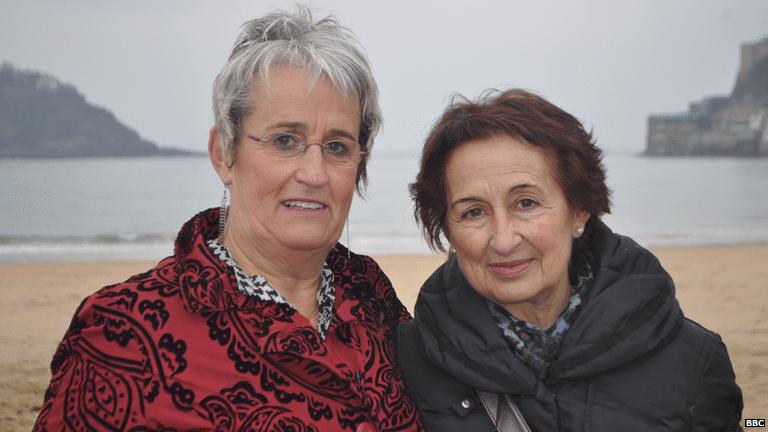
- Published25 October 2013
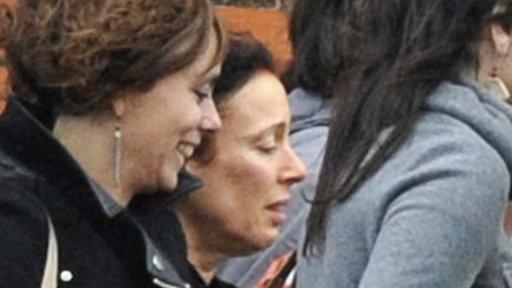
- Published21 October 2013
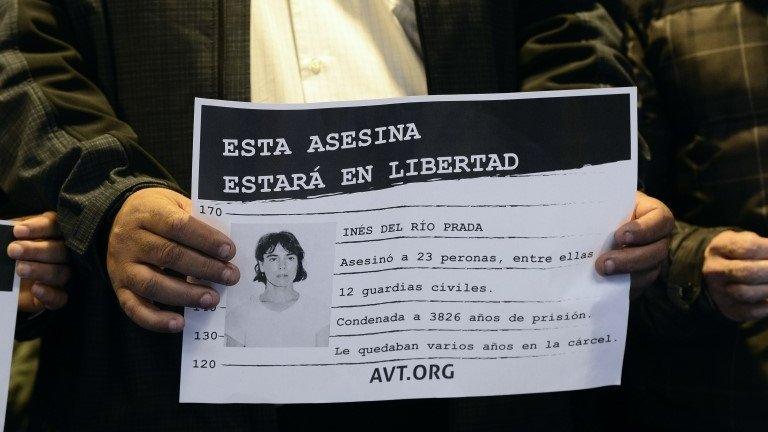
- Published8 April 2017
